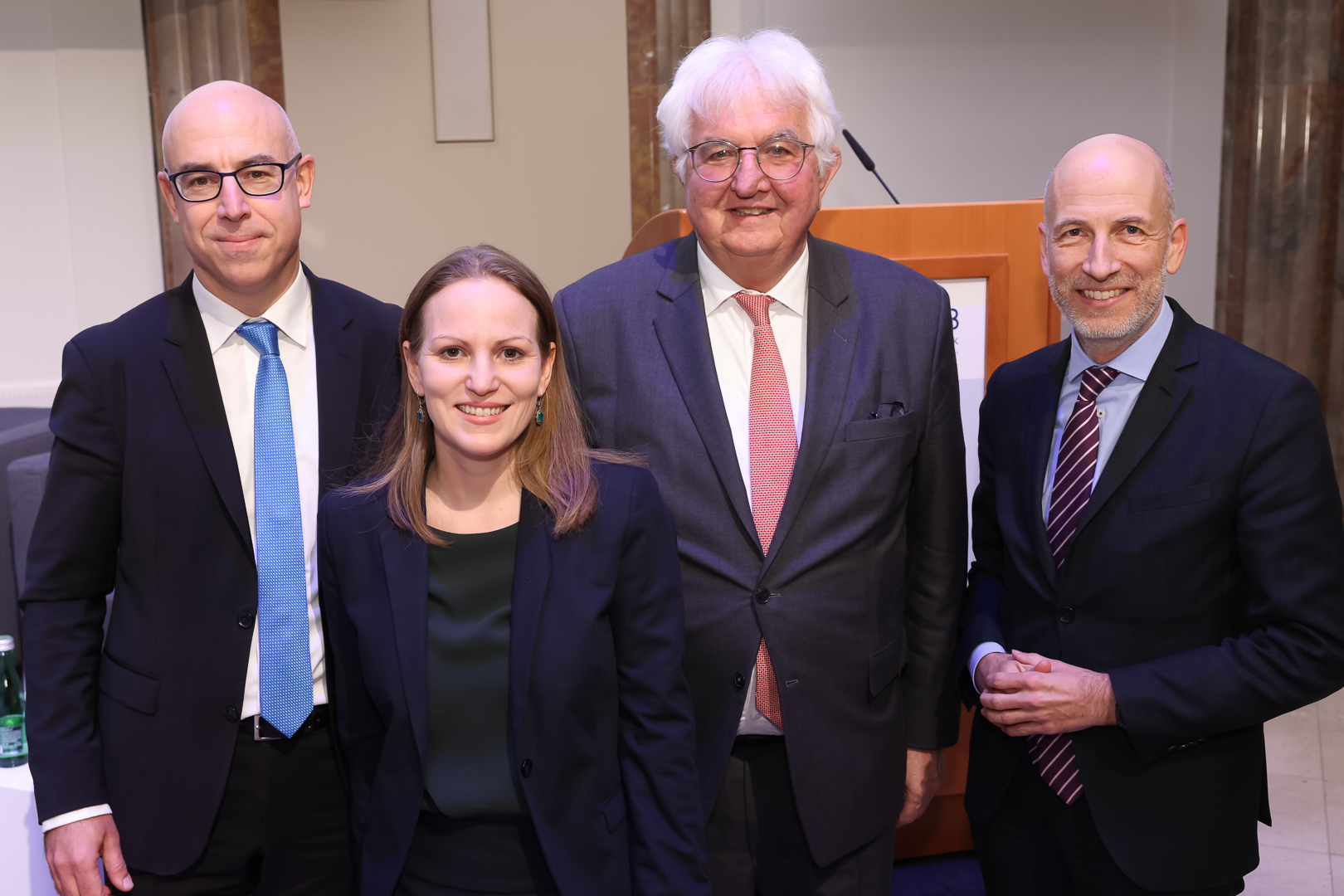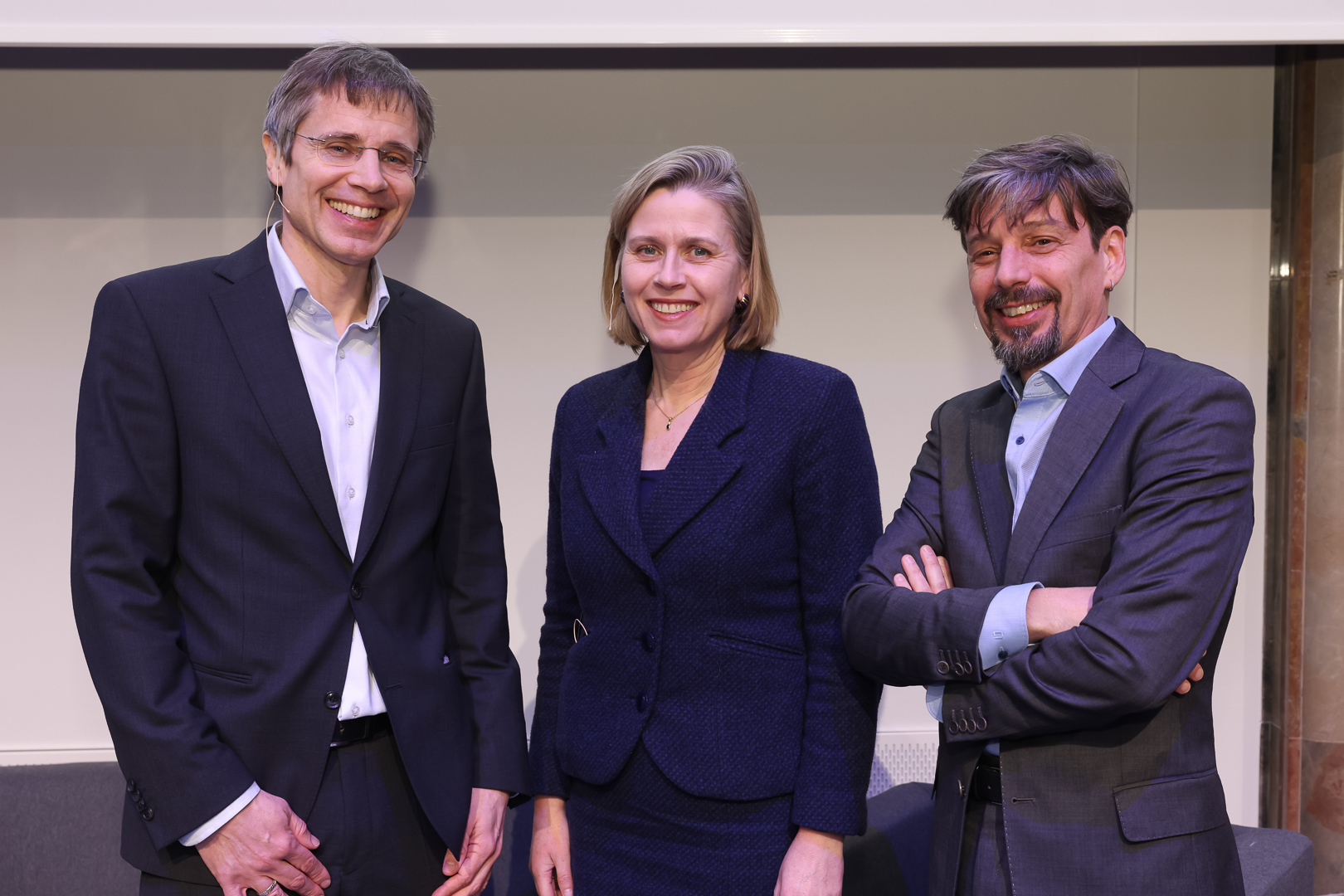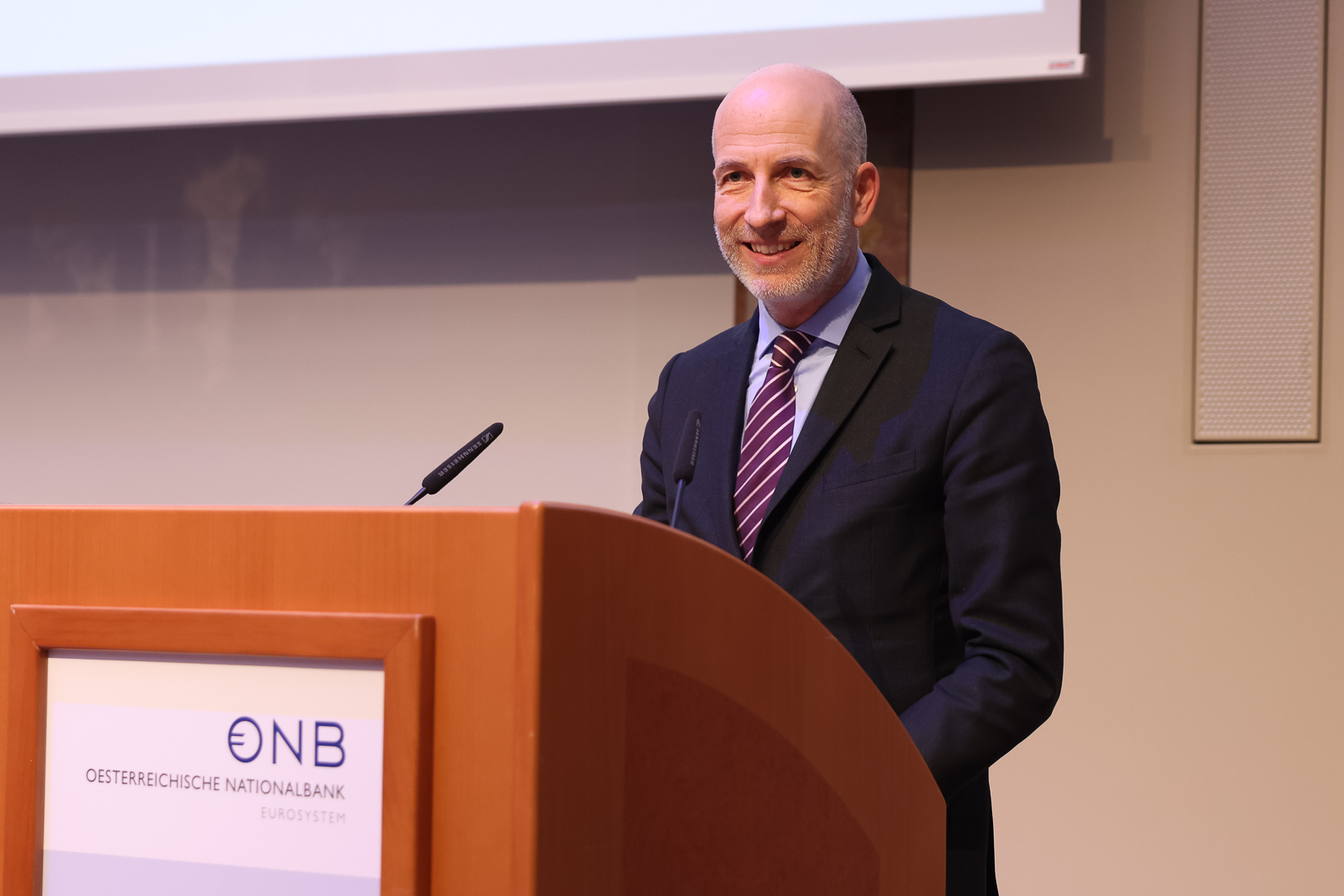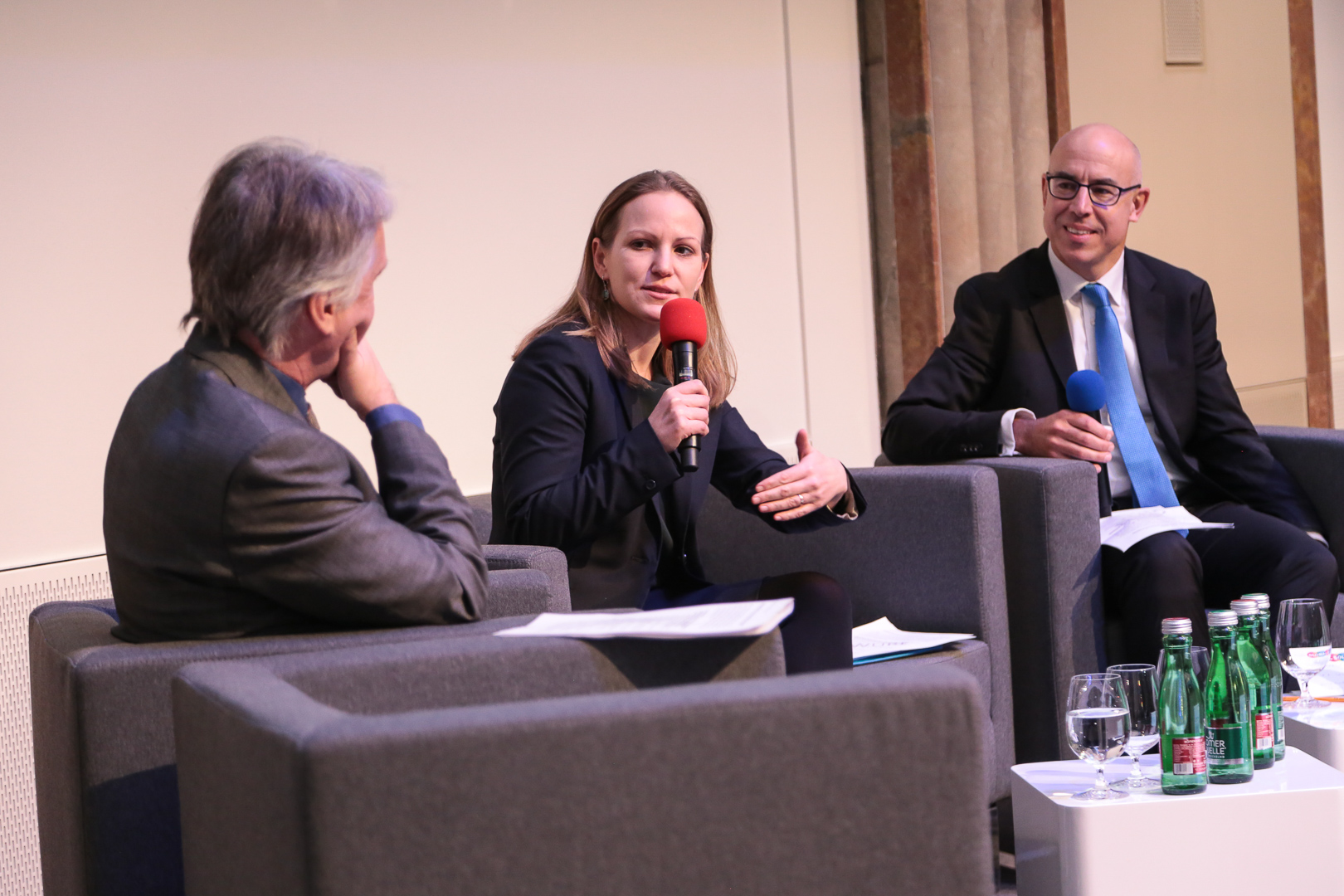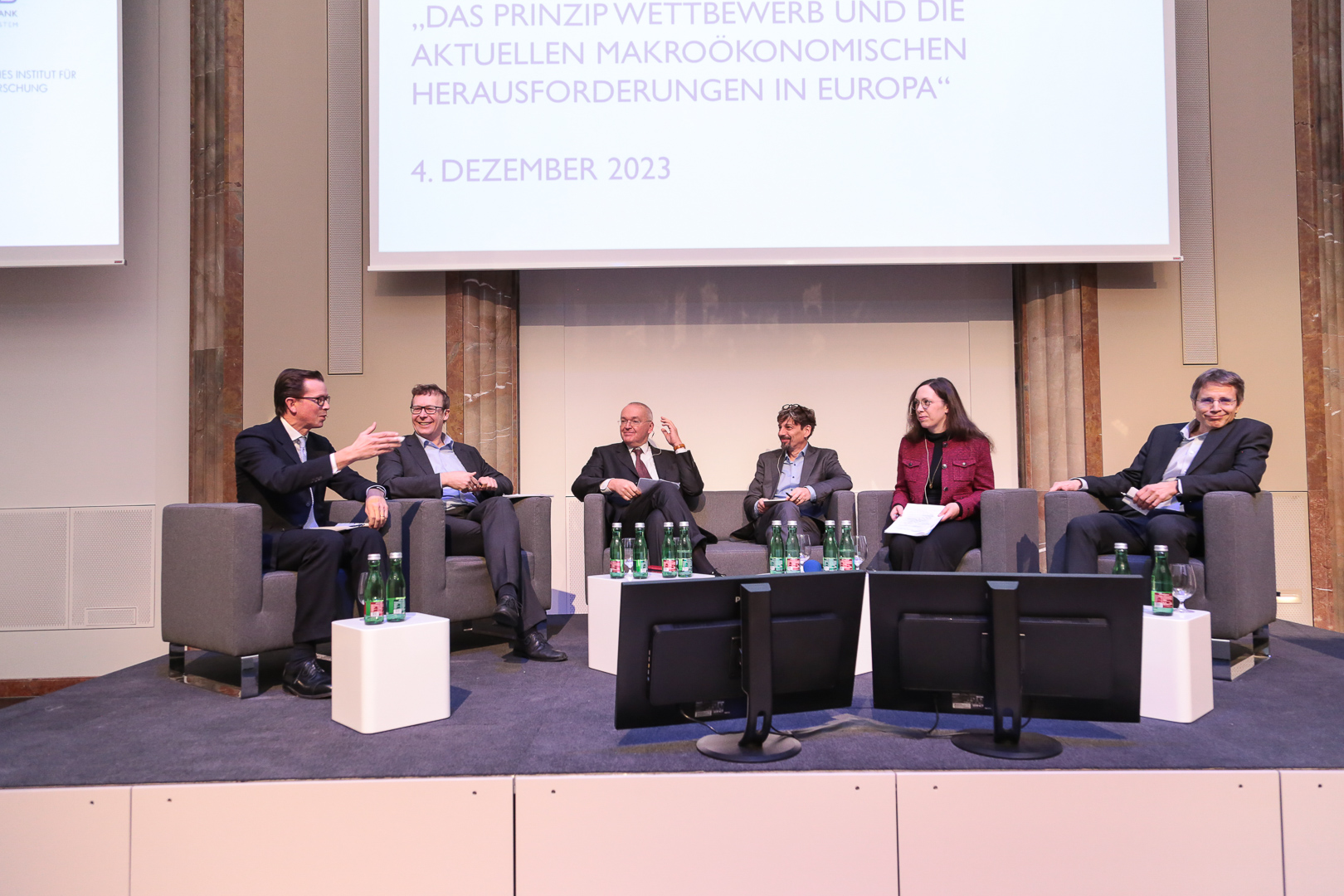Numerous leading experts from academic institutions and competition enforcement took part in the event. Gabriel Felbermayr, Director of WIFO, and Natalie Harsdorf-Borsch, Director General of the AFCA, shared their views on the topic of “Strengthening competition in today’s challenging environment”, focusing in particular on the comparison between theory and practice. In the subsequent panel discussion, they were joined by Justus Haucap (Düsseldorf Institute for Competition Economics – DICE, University Düsseldorf), Viktoria Robertson (Vienna University of Economics and Business – WU Wien), Supreme Cartel Court’s Senate President Georg Kodek (WU Wien), Tomaso Duso (German Institute for Economic Research – DIW Berlin, Monopolies Commission) and Philipp Schmidt-Dengler (University of Vienna).
Fiona Scott Morton of Yale University, Tomaso Duso of the German Monopolies Commission and Philipp Schmidt-Dengler of the University of Vienna gave insightful talks on competition and market concentration, prioritising academic perspectives as well as empirical viewpoints.
“This dialogue between the experts provided us with an excellent overview of competition in Austria and in the EU. As the competition authority, we need to focus specifically on the many novel digital challenges, on ensuring open access to the market and on robust merger control. Our clear focus is therefore a future in which competition can develop in a sustainable way, so that markets can operate positively and efficiently for people's benefit,” declared Natalie Harsdorf-Borsch, Director General of the AFCA.
“In view of soaring inflation, it makes sense to consider additional competition reforms and to learn from international best practices. Competition enforcement and policy can be a powerful factor in bringing about fair market conditions, innovation, quality, low prices and, ultimately, raising Austria’s competitiveness on the international markets,” noted Gabriel Felbermayr, WIFO Director.
“Competition creates jobs and prosperity. It not only ensures price competition in Austria, but is also a powerful driver of innovation and first-rate quality. Competition is therefore essential for continued technological and economic progress. It transcends national borders, and is the driver not just of excellence but also of global prosperity. This is why we need international competition rules in the form of an essential framework that ensures that competition is fair and balanced, and promotes innovation, efficiency and sustainable economic growth across the globe,” stated Martin Kocher, Federal Minister of Labour and Economy.
“Competition is pivotal for progress and indispensable for innovation and change, and ultimately also for societal and individual prosperity,” commented Robert Holzmann, Governor of the OeNB.
“This is an important moment for the competition community because of the strong evidence of the benefits of competition enforcement and a recognition that societies have been doing too little of it. Competition enforcement provides benefits across the economy like higher productivity, wage increases, open digital markets, lower prices and more innovation,” explained Fiona M. Scott Morton, Professor of Economics at the Yale School of Management.

